Intro
Find lasting Tinnitus Ear Ringing Relief with proven remedies and treatments, alleviating symptoms of ringing ears, ear buzzing, and hearing loss, for a quieter life.
Tinnitus, often described as a ringing, buzzing, or hissing sound in the ears, affects millions of people worldwide. This condition can be debilitating, impacting daily life and causing significant distress. Understanding the causes, symptoms, and available treatments for tinnitus is crucial for those seeking relief. In this article, we will delve into the world of tinnitus, exploring its complexities and the various approaches to managing this condition.
The importance of addressing tinnitus cannot be overstated. It is not just a minor annoyance but a condition that can lead to sleep disturbances, anxiety, depression, and a reduced quality of life. The financial burden of tinnitus is also significant, with affected individuals often seeking multiple treatments and therapies in an attempt to find relief. Moreover, tinnitus can be a symptom of an underlying condition, such as hearing loss, earwax buildup, or certain medications, making it essential to seek medical attention if symptoms persist.
For those experiencing tinnitus, it is vital to understand that they are not alone. The condition affects people of all ages, although it is more common among older adults. Tinnitus can be constant or intermittent, with sounds varying in pitch and volume. Some people may experience tinnitus in one ear, while others may perceive it in both ears or even in the head. The subjective nature of tinnitus makes it challenging to diagnose and treat, but there are several strategies and therapies that can help alleviate its symptoms.
Tinnitus Causes and Risk Factors
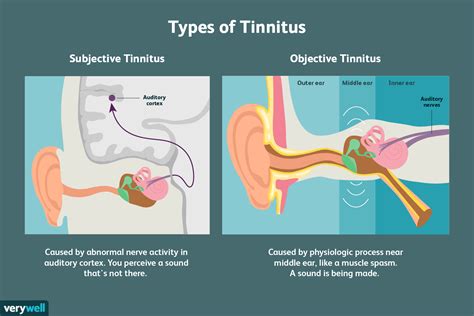
Tinnitus is often associated with exposure to loud noises, which can damage the hair cells in the inner ear responsible for sound processing. Other causes include age-related hearing loss, earwax buildup, middle ear infections, and certain medications such as antibiotics, aspirin, and quinine. Head and neck injuries, as well as conditions like Meniere's disease and temporomandibular joint (TMJ) disorders, can also contribute to the development of tinnitus. Understanding the underlying cause of tinnitus is essential for developing an effective treatment plan.
Age-Related Hearing Loss
Age-related hearing loss, also known as presbycusis, is a common cause of tinnitus. As people age, the hair cells in the inner ear gradually deteriorate, leading to hearing loss and tinnitus. This type of hearing loss is typically gradual, affecting high-frequency sounds first. While age-related hearing loss is irreversible, there are various treatments and strategies that can help manage its symptoms.Exposure to Loud Noises
Prolonged exposure to loud noises is a significant risk factor for developing tinnitus. Loud sounds can damage the hair cells in the inner ear, leading to tinnitus and hearing loss. This type of tinnitus is often referred to as noise-induced tinnitus. Musicians, construction workers, and individuals who work in noisy environments are at a higher risk of developing noise-induced tinnitus.Tinnitus Symptoms and Diagnosis
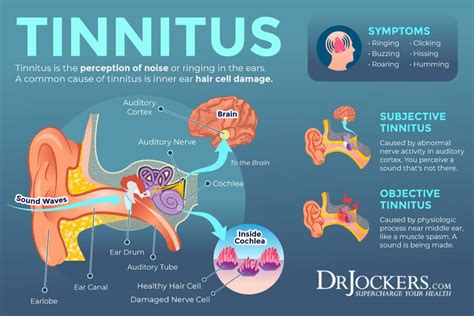
The symptoms of tinnitus can vary significantly from person to person. Some common symptoms include:
- Ringing, buzzing, or hissing sounds in the ears
- Perception of sound in one or both ears
- Varying pitch and volume of sounds
- Intermittent or constant sounds
- Difficulty sleeping due to tinnitus
- Anxiety, depression, or stress related to tinnitus
Diagnosing tinnitus involves a comprehensive medical history, physical examination, and audiological tests. A healthcare professional may use techniques such as pure-tone audiometry, speech audiometry, and tympanometry to assess hearing and middle ear function. In some cases, imaging tests like MRI or CT scans may be necessary to rule out underlying conditions.
Audiological Tests
Audiological tests are essential for diagnosing and managing tinnitus. These tests help assess hearing thresholds, speech recognition, and middle ear function. The results of these tests can help healthcare professionals develop an effective treatment plan and monitor the progression of tinnitus over time.Tinnitus Treatment Options
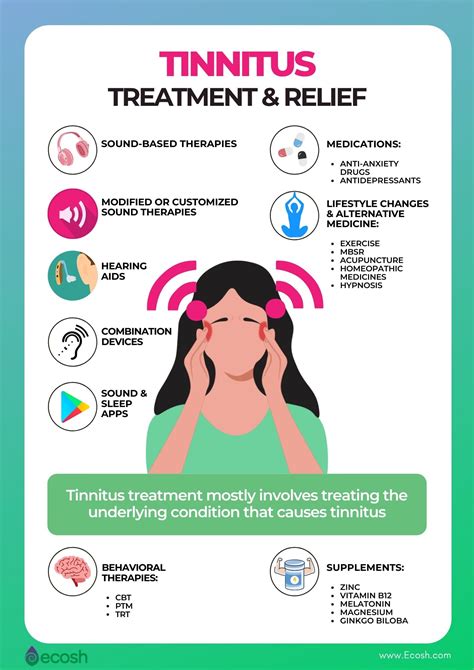
While there is no cure for tinnitus, various treatment options can help alleviate its symptoms. These include:
- Sound therapy: Exposure to soothing sounds, such as white noise or nature sounds, to help mask tinnitus
- Cognitive behavioral therapy (CBT): A type of counseling that helps individuals change their perception of tinnitus and develop coping strategies
- Tinnitus retraining therapy (TRT): A combination of sound therapy and counseling to help the brain habituate to tinnitus
- Hearing aids: Amplification of external sounds to help mask tinnitus and improve communication
- Relaxation techniques: Stress reduction methods, such as meditation, yoga, or deep breathing, to help manage tinnitus-related stress
Sound Therapy
Sound therapy is a widely used treatment for tinnitus. This approach involves exposure to soothing sounds, such as white noise, nature sounds, or music, to help mask tinnitus. Sound therapy can be delivered through various devices, including hearing aids, tabletop sound machines, or mobile apps.Lifestyle Changes for Tinnitus Management
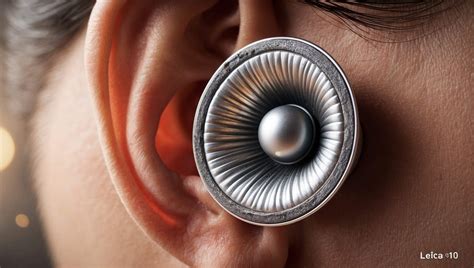
In addition to medical treatments, lifestyle changes can play a significant role in managing tinnitus. These include:
- Reducing stress through relaxation techniques, such as meditation or yoga
- Avoiding exposure to loud noises and wearing ear protection when necessary
- Maintaining a healthy diet and exercising regularly
- Getting enough sleep and practicing good sleep hygiene
- Staying socially engaged and connected with friends and family
Stress Reduction
Stress can exacerbate tinnitus symptoms, making stress reduction techniques essential for managing the condition. Relaxation methods, such as meditation, yoga, or deep breathing, can help reduce stress and anxiety related to tinnitus.Alternative Therapies for Tinnitus
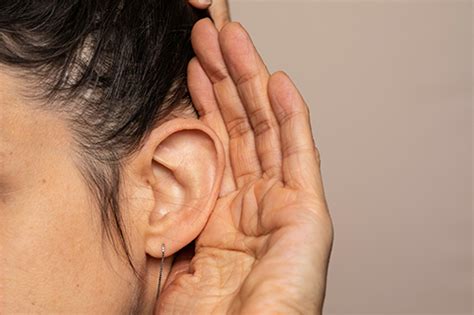
Alternative therapies, such as acupuncture, hypnosis, and herbal supplements, have been explored as potential treatments for tinnitus. While these approaches may not be supported by scientific evidence, some individuals have reported benefits. It is essential to consult with a healthcare professional before trying alternative therapies, as they may interact with conventional treatments or have adverse effects.
Acupuncture
Acupuncture, a traditional Chinese medicine technique, involves the insertion of fine needles into specific points on the body. Some studies suggest that acupuncture may help alleviate tinnitus symptoms, although more research is needed to confirm its effectiveness.Future Directions in Tinnitus Research

Research into tinnitus is ongoing, with scientists exploring new treatments and therapies. Some promising areas of research include:
- Transcranial magnetic stimulation (TMS): A non-invasive technique that uses magnetic fields to stimulate brain activity
- Transcranial direct current stimulation (tDCS): A non-invasive technique that uses electrical currents to stimulate brain activity
- Gene therapy: A potential approach to treating tinnitus by modifying genes involved in hearing and sound processing
Transcranial Magnetic Stimulation (TMS)
TMS is a non-invasive technique that uses magnetic fields to stimulate brain activity. Some studies suggest that TMS may help alleviate tinnitus symptoms by modifying brain activity patterns.What is tinnitus?
+Tinnitus is the perception of sound in the ears or head when no external sound is present.
What causes tinnitus?
+Tinnitus can be caused by exposure to loud noises, age-related hearing loss, earwax buildup, and certain medications, among other factors.
How is tinnitus diagnosed?
+Tinnitus diagnosis involves a comprehensive medical history, physical examination, and audiological tests, such as pure-tone audiometry and speech audiometry.
What are the treatment options for tinnitus?
+Treatment options for tinnitus include sound therapy, cognitive behavioral therapy, tinnitus retraining therapy, hearing aids, and relaxation techniques, among others.
Can lifestyle changes help manage tinnitus?
+Yes, lifestyle changes, such as reducing stress, avoiding loud noises, and maintaining a healthy diet, can help manage tinnitus symptoms.
In conclusion, tinnitus is a complex condition that affects millions of people worldwide. While there is no cure, various treatments and therapies can help alleviate its symptoms. By understanding the causes, symptoms, and treatment options for tinnitus, individuals can take the first step towards finding relief. We encourage you to share your experiences with tinnitus, ask questions, and seek support from healthcare professionals and support groups. Together, we can work towards a better understanding of tinnitus and improved management of its symptoms.
